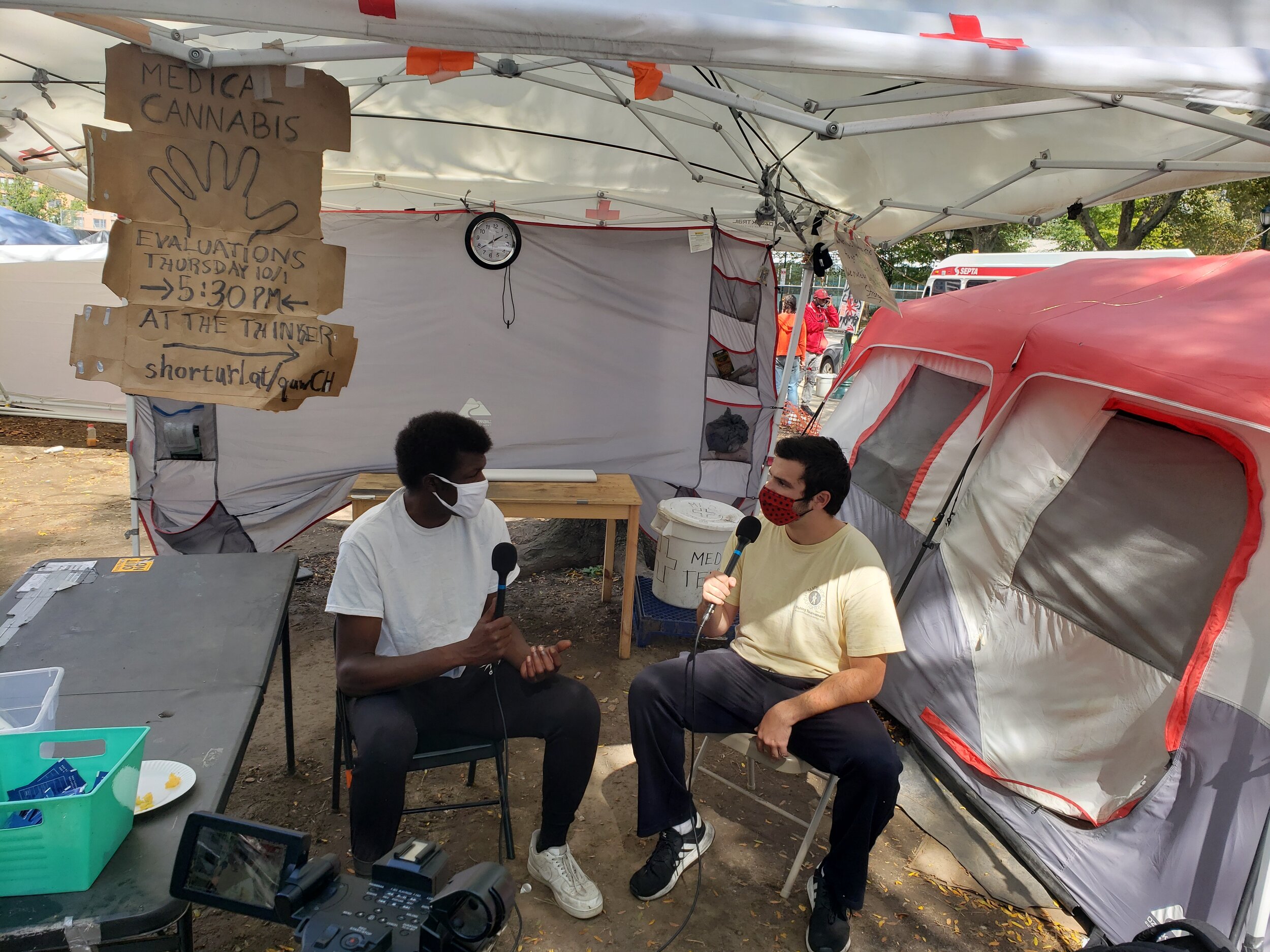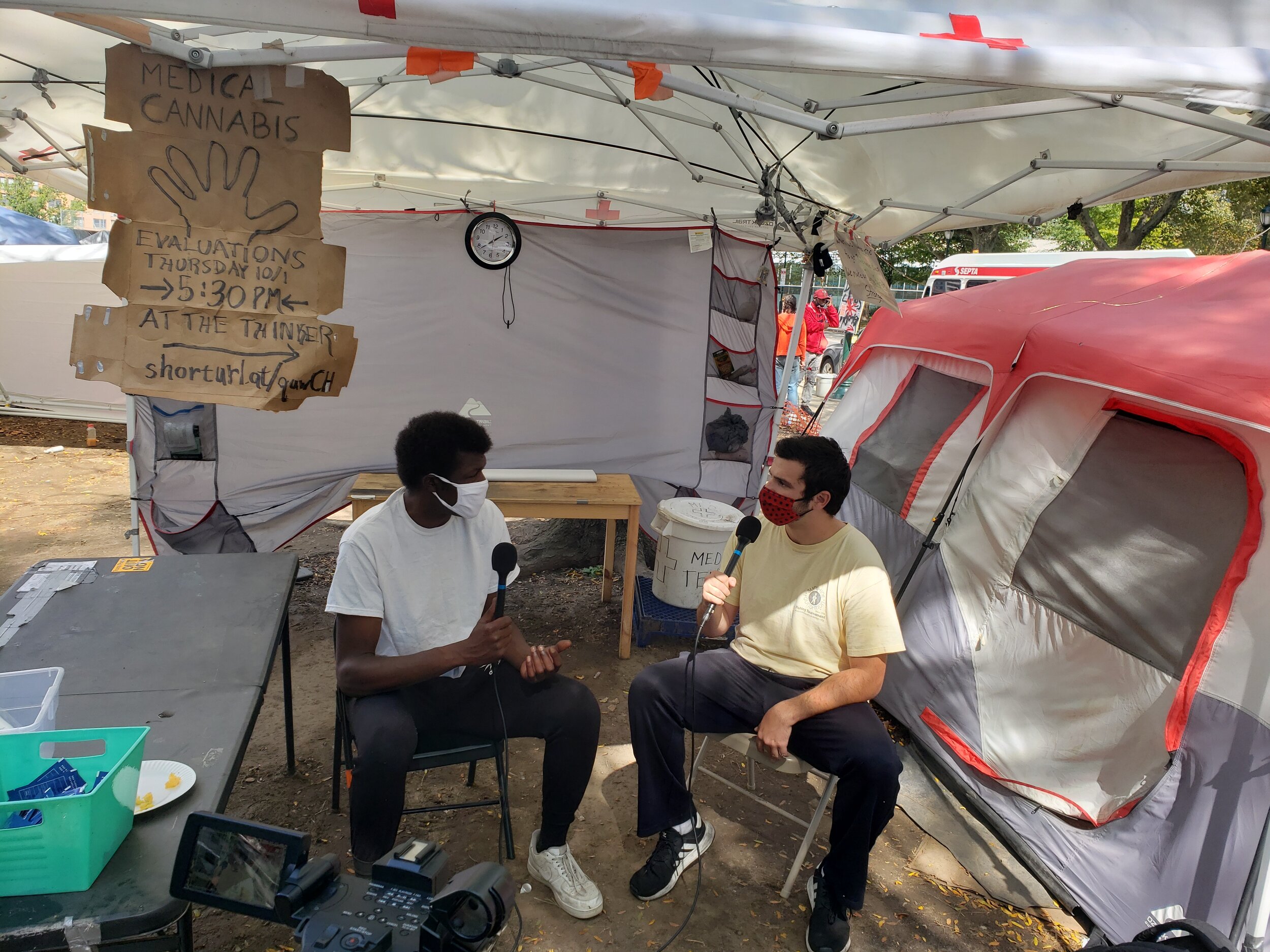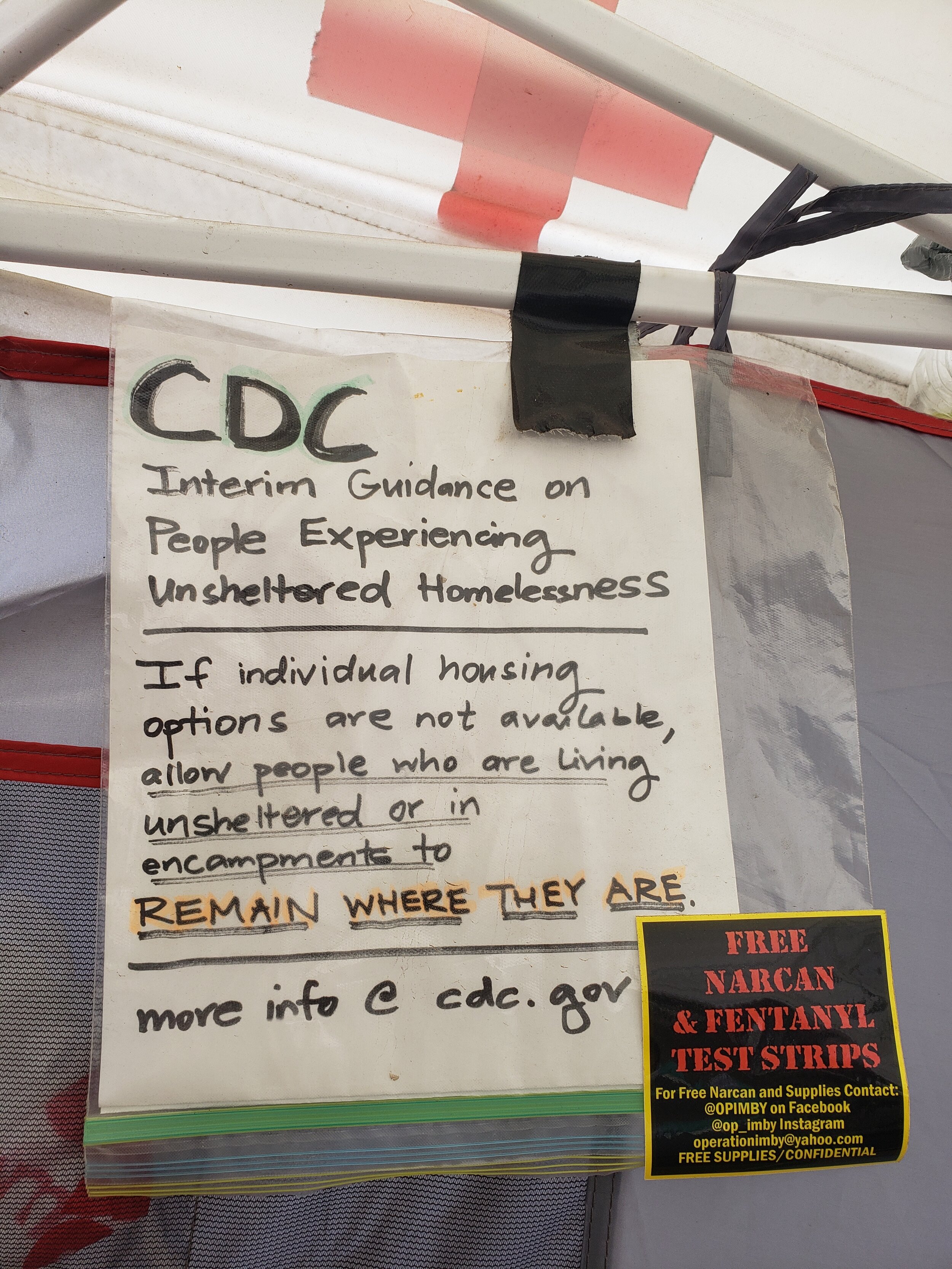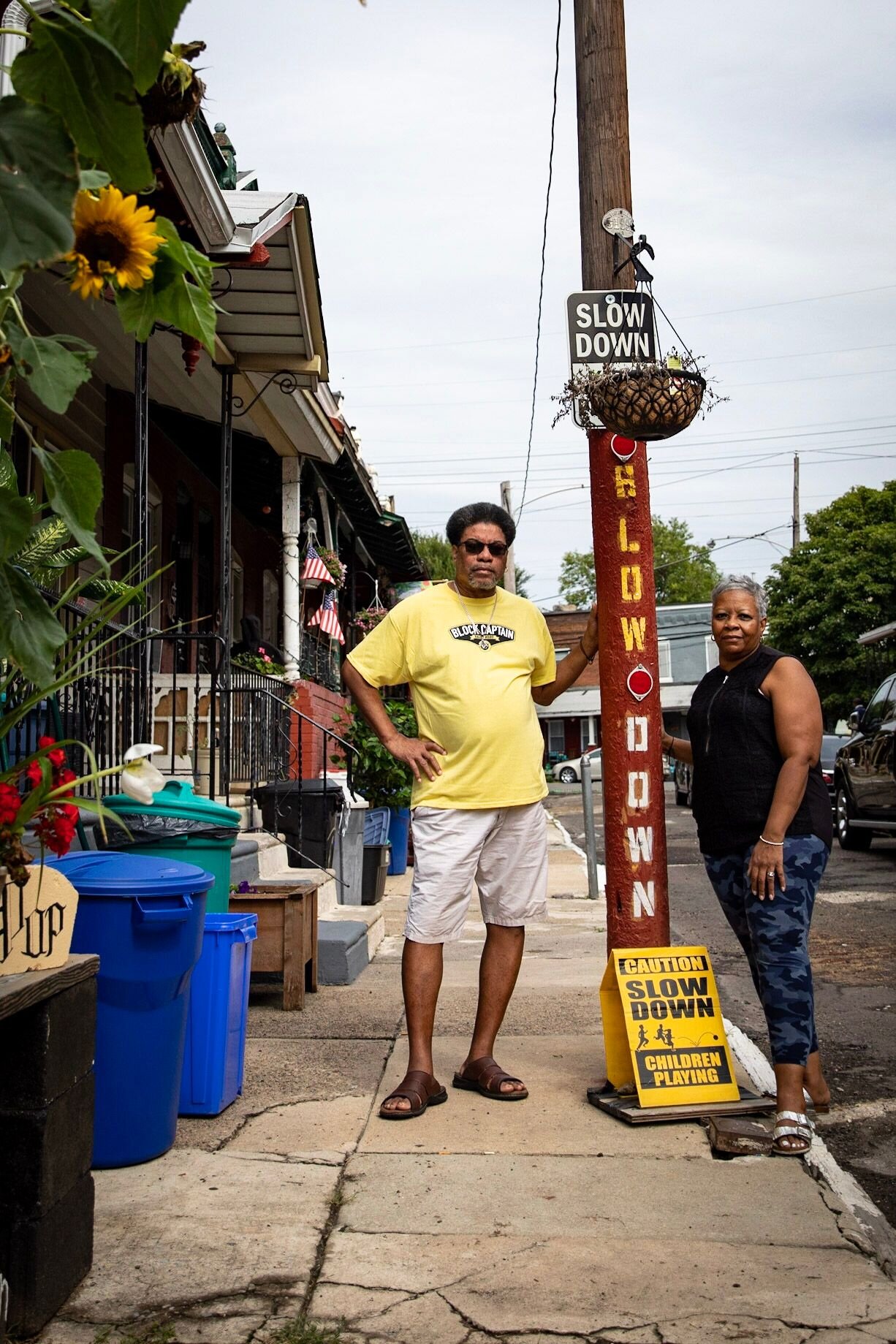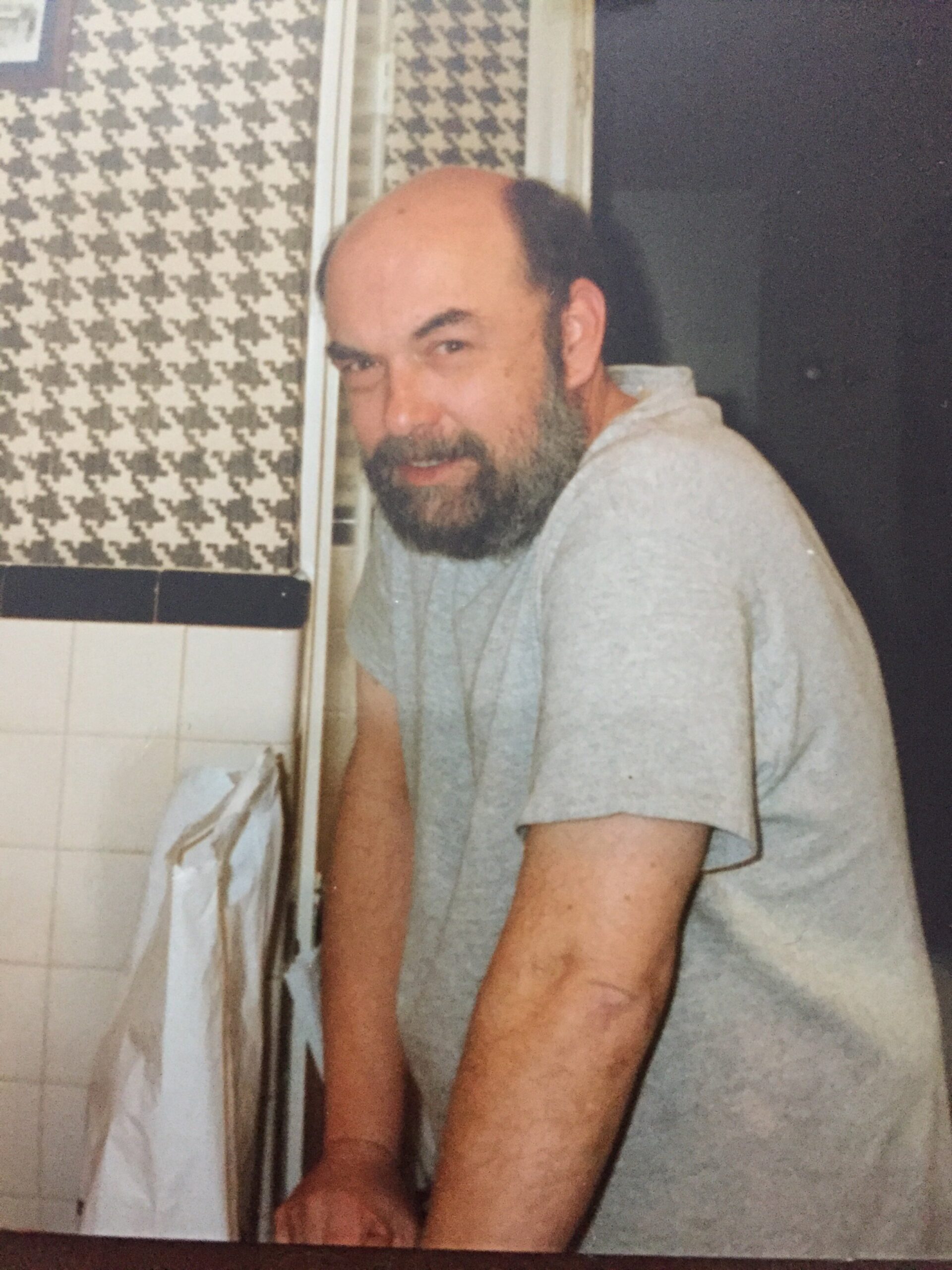On Tuesday night, it was announced that an agreement was reached between the City of Philadelphia, and the residents of Camp JTD. The City has promised residents of the encampment, which formed at 22nd street and the Benjamin Franklin Parkway in early June, 50 houses in a land trust. The move-in process will take place after the paperwork establishing the land trust is filed through the State.
The deal also includes the development of two tiny house villages, nine bedrooms available for individuals and five bedrooms (one house) for a family under their existing Shared Housing Initiative program, and 50 new rapid rehousing opportunities
Grid spoke with residents of the camp about their experiences and the steps they’re hoping to see taken before its disbanding. Our second interview, transcribed below, was with a camp resident named Dave. He was a relatively new addition to the encampment just finding his role as a mediator a few weeks into his stay at the camp.
Voices From the Encampment is a series of interviews with Camp JTD residents and affiliated activists about the tentative housing deal being forged with the city. The following interview is the second in a series of six. It has been edited for clarity and style.
My name is Jason Peters. I’m an independent journalist, and I am here on the ground at the JTD camp with a young man named Dave, who I’ve never met before. Dave, please introduce yourself.
My name is Dave, I am new to camp. I’ve only been here for about a month and a half, but I kind of took on a role as somebody who just kind of steps in when I’m needed to handle things.
What do you mean?
Well, one of the reasons why I’m homeless is mental illness. When it goes untreated, you kind of don’t know what to do with yourself, and sometimes that leads to… financial hardship, or maybe you just get to a place where you can’t be indoors anymore. It could be you’re gay, and your parents don’t accept you, or maybe you’ve done something and you need to go on the run or something. Whatever the reason being, they vary, and they’re many, and they’re serious, and they can lead to just being outside and needing to be away from normal, conventional means of society.
How old are you?
I’m 34.
Where were you before this?
I’ve actually lived in the city of Philadelphia for about six years. I’ve been homeless for about three of them.I was familiar with the camp before I came here, pretty much from its existence. I have friends that are homeless, and they’ve been living here.
Talk about the homeless community.
It actually is a community unto itself. I had to come to terms with that myself, but having been a part of this community for about three, maybe four years, we are A community unto ourselves. We really sort of police ourselves, we really sort of take care of our own, we really are sort of a family unto our own.
Do you prefer this to other situations?
Without getting into too much detail, compared to the situation we had before this, yes, this is ideal. For the city and for us. We’re all in one location, primarily. There are still people in the city who prefer to do their own thing, which is encouraged. Do your own thing. Because, like I said, some people can’t be around large crowds. I used to have that problem. I’m sort of working on it since I’ve been out here, but you know, we’re in one main location. Now we have a donation station where people drop off stuff, instead of just them trying to find people all over the city. [it’s] more contained, in a good way, in a more humane way. We get more rest, you know, when we can.
You get more rest?
Yeah. One of the main problems was, we were downtown downtown, like… we were pretty much in the way. But we didn’t really have another place to go that was safer than the train station, or the municipal building, or City Hall. They’re close to all the resources we use, like the Hub of Hope and some city resources. Like the Office of Homeless Services and stuff like that. They’re right down the block. And plus, it’s just where we all know each other, and where we can all get to safely because it is the heart of downtown. You can get to it from pretty much anywhere outside of the city, and it’s just kind of where everybody ends up. So it was just easier to be down in one central location [that] everybody could find, and that was just the heart of the city.
But being up here, it’s actually better because, you know, it’s still on the bus line. It’s out of the way of the city services. I get we’re in the way but that’s the whole point of the protests. We’re supposed to be in the way, but out of the way of the city, you know?
It’s a thin line.
Yeah, what I’ve been discussing with the residents and what we’ve been kind of saying amongst ourselves is we’re kind of like a neighborly occupation now. We have to remember that we are a protest, but we’re sort of protesting in a neighborhood, so we have to remember that we are neighbors with them. I do realize, being a part of the community, that we do get loud. And we do have incidents around here that, you know, you wouldn’t normally have around here, just because of who we have in our camp and the problems that come along with being homeless, and that are in our community. We acknowledge that, but we try to work on them, and we try to acknowledge them as fast as possible, and that’s part of the reason why we opened the street back up. We did get, um, what we felt in our eyes was a fair deal.
The 50 houses?
Yeah. For right now. Like, we want something better, we’re not going to stop, obviously. That’s why we’re still here, but, we wanted to work with the city and we gave the street back and we’ve been trying as hard as possible to keep our business out of the street.
And we have had like outside threats. The Proud Boys were in town, and we had an incident with them. We have had people come through because we are largely a community of minorities, and you know, gay, lesbian, LGBTQ, all that kind of stuff is here, and it’s accepted and encouraged and welcomed here. But at the same time, it does open us up to being targets.
We are completely aware of what’s going on outside. We are aware we’re in the middle of a pandemic, we’re in the middle of an election… There’s never not something going on in the year 2020, but at the same time, it doesn’t mean that we’re not important. And that was the whole point, is when things like this happen, we’re already stepped over and looked down upon. It’s just we get completely forgotten, and sometimes we sort of become casualties of war, almost, because we don’t have money for this, because it needs to be put towards something important. And we’re just saying, we don’t count?
We’re also human beings, we’re important. I’m sorry it took something like this, but at the same time, I’m not sorry, because it’s yielded results… We don’t know how much longer we’re going to be here. We don’t want this to end like in any way violently. t’s just people trying to live somewhere civilly. That’s why a lot of times you hear music here, and that’s why you hear things like barbecues and fireworks unfortunately going off, and stuff like that… That’s why you see people still from the neighborhood, walking through here.
A lot of the donations we get are from the neighborhood. People literally run to Whole Foods, they’ll come down here, “What do you guys need?” They’ll run to Whole Foods, and then ten minutes [later] bring it down here in bulk. A lot of our donations come from the neighborhood. So it’s not like… (Loud vehicle noise) And again, much like being in the neighborhood, we don’t like that stuff either, you know? All the loud noises that wake [us] up. We get people that run by and honking horns, and that’s what we try to stress. We get it, we’re in the way, but we’re trying to be in a way that’s not in the way anymore, you know? And this is the best option.
What message would you like to send to your neighbors?
First and foremost, for the noise: we’re sorry, we get it. We don’t like it either. At the end of the day, it’s really about basic human decency. We just want to live as humanly possible in the circumstances in which we’re given, and unfortunately, this is the circumstances in which we’re given. Much like people that live in the houses around us, like in Fairmount, in Spring Garden, on the parkway, right across the street. Let’s not pretend like you don’t have the same issues, you just have the luxury of going through them inside. We want that same luxury, which is why we’re here. It’s just our version of inside [is] our tents right now. For right now. That’s why we took the 50 houses, but we’re still here.
We want more, we want something better, but we realize that compromise is the way out and this is the way forward, but it doesn’t mean that this is where it ends. Like we tell people with donations that we’re winterizing, because it’s getting colder.
We just had our gracious two weeks of fall, but now it’s going to be winter soon… Luckily, the past couple years, it hasn’t been snowing as much, but we do normally get one major snowfall. In situations like that, still, this is an ideal location to be, because once again, when it snows, you have to stay indoors. So that means if we were down at the train station in Philly, we would be indoors the entire length of that. That could be a day, it could be three days, it could be a week, you know, and we don’t want that either.
So if this is the better option for winter, yeah, we’ll stay here… It doesn’t mean that we’re gonna make this Custer’s Last Stand… We’re just going to start and make this as comfortable as possible, keeping in mind that we are [in] a neighborhood, but yes, we are an occupation. We are a protest, and I hate to use this phrase “us against them.” Us being “us the homeless community,” against the city…
We get it, and in this situation, like the casualties of this “war” are like… peace and quiet. Like, you know, the softball league, the fact that maybe I don’t think I can safely traverse down this block because I see the things that go on. …Sometimes we all stay in our tents all day, because we’ve had an incident today and you don’t know how long it’s gonna go. We get it, we react the same, because we’re human. We all have the same needs and all the same fears and all the same worries. But at the same time, this is a protest. We’re staying here. And the solutions are simple.
One other thing I want to point out, and this is something that does not go unsaid, there are multiple horror stories. We don’t use city services because simply, they are not safe for us.
Like the shelters?
Yes, three years ago, and you can google this, there was a murder at a shelter named Sunday Breakfast. I was there for that. When I say I was there for that, I was asleep and it woke me up. When that happens, no, you don’t want to stay in a shelter like that, I’m sorry. And yes, it does traumatize you and it adds to whatever mental illness, it just compounds the situation.
Don’t get me wrong, not all city services are like that, but that’s how bad it can get. It can be something as little as, “today, I need a shower, and I can’t find a shower Because I didn’t come at the right time or because I don’t [know]”… That just makes your day worse and it makes things harder. We’re sick of dealing with that. So yeah, we’re sorry, if it means we have to set up a makeshift shower, using the water that we’re not paying for, sorry, we’ll do it. But it also means that we’re not showering in the bathroom down at the train station.
Which is more humane? And honestly, what would you prefer? Ultimately, we would all like to be showering indoors in our own homes. And that’s why we’re here. And that’s why we’re staying right now.
Is there anything else that you want people to know about your situation?
We can always use donations, and we are gearing up for fall and winter. So if you are going to donate, please donate fall items, blankets, sweaters, men’s clothing, women’s clothing.
And also, we still want to talk to the city. Like, we’re still talking to the city, negotiations are still ongoing and they’re civil. We do make progress, as I see on both sides, and we’re willing to compromise. Like I said: 50 houses, street stays open.
Just remember that we’re just humans who want to live like humans, like indoors. But until we get certain needs met and certain demands met, most among them, we want to know that we can go to city services and be treated like humans who have needs that need to be met. In a humanly way, you know? We want to know that we can be taken care of in a safe, civil manner and come to you and not feel judged for that… but until that, there are obvious problems that need to be addressed.
That’s all we’re saying. Address the issues, and we’ll come to you. But don’t tell us “Go sit somewhere until we’re ready for you to get better, until we stop using…”
Would it mean anything to you to see like the mayor come down here?
Yes! That’s all we’re asking, something as simple as that. Stop with, you know, the press releases and all [that]…
Which is why we do stuff like this. To let everybody know that yes, we are in a protest, but it’s a peaceful, neighborly occupation. We’re not here to “take,” no, we just want a house. I just want to go inside and watch TV and not have you watch me do it.
If I can come to the city for that, awesome. We’d all love that. But you know what? You ain’t doing nothing for us, so we’ll do it for ourselves.


